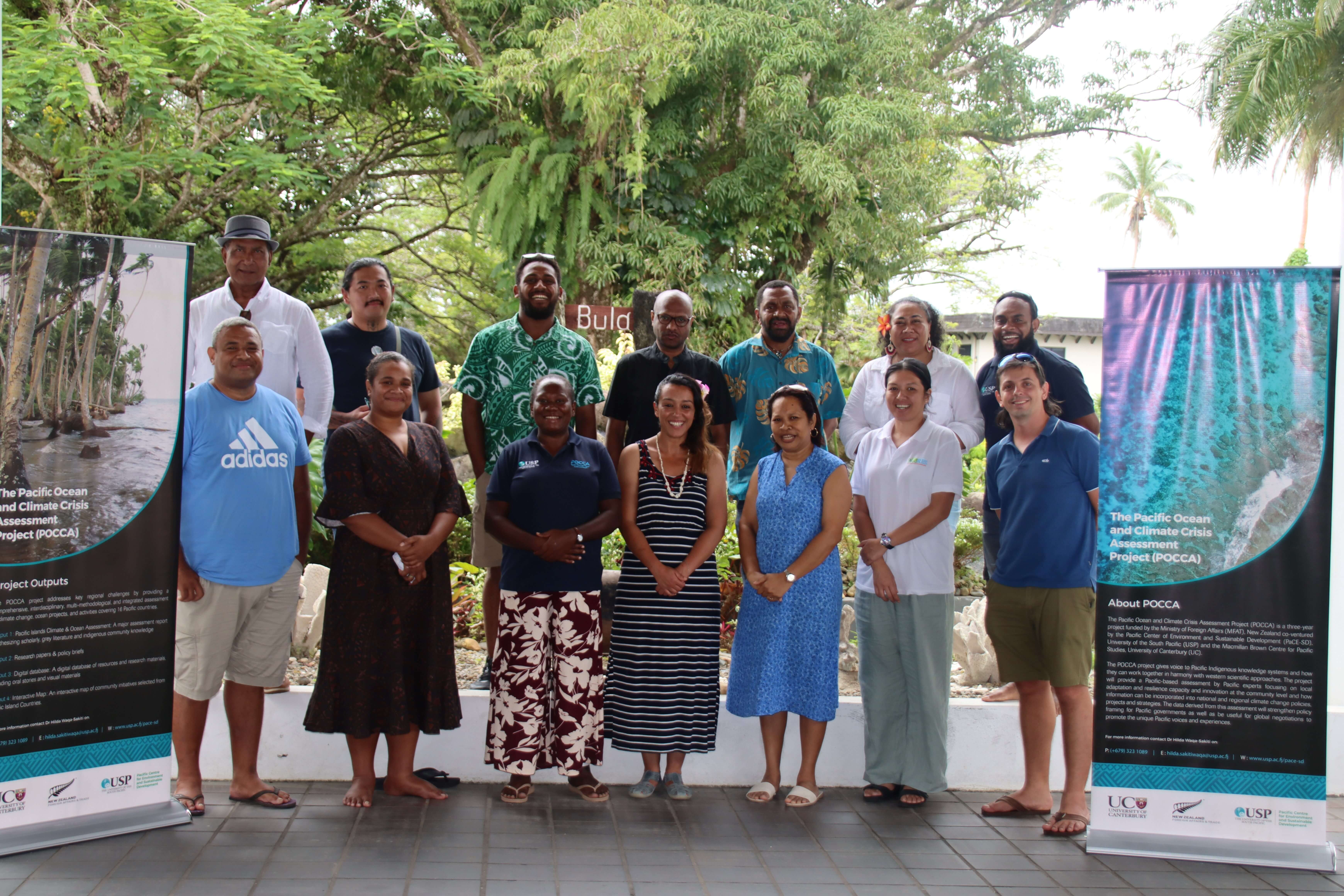Related News

The close collaboration and synergy between the Pacific Ocean and Climate Crisis Assessment project partners from The University of the South Pacific (USP) and the University of Canterbury (UC) has enabled the project to meet its goals progressively, heading into the new year.
This was highlighted by Dr Christina Laalaai-Tausa, the project team leader for UC during the POCCA project planning meeting held at The Pearl resort last week.
“Our six monthly monitoring and evaluation done in December 2023, indicates that POCCA continues to achieve its objectives due to the synergy between the two teams,” said Dr Laalaai-Tausa.
The staff exchanges between the partnering institutions is a key part of the project which started in late 2023 when the USP team visited UC and was also part of the project planning meeting during the one-week trip.
“Our staff exchanges have allowed both teams to explore our strengths and channel these towards filling any gaps to ensure successful project delivery,” she added.
Echoing the sentiments of Dr Laalaai-Tausa, USP-based team leader Dr Hilda Waqa-Sakiti said this second staff exchange allowed the two teams to discuss and fine-tune project deliverables in preparation for the closure of the project in June this year.
“The second staff exchange provided an opportunity to meet in person and discuss between the project partners on project deliverables, monitoring, and reporting towards meeting deadlines,” Dr Waqa-Sakiti said.
“The project three-day planning meeting also took place during the second staff exchange where both teams workshopped through the final steps for each deliverable with the main focus on the POCCA report being the main output,” she added.
Dr Waqa-Sakiti said the four main outputs of the project are on schedule.
With a big project such as this, one of its biggest challenges is navigating the complexities of working with 80-plus authors for the POCCA report across the Pacific and beyond.
“POCCA is an additional commitment on top of their own already extensive schedules and nurturing our relationships with our authors from around the Pacific including Australia and New Zealand has been fundamental to us working with experts to meet deadlines,” Dr Laalai-Tausa said.
The staff exchange this time around together with the planning workshop has set the platform for what will prove to be a critical year for the POCCA project.
Funded by the Ministry of Foreign Affairs (MFAT), New Zealand, the three-year POCCA project is a collaborative effort between the Pacific Centre for Environment and Sustainable Development (PaCE-SD) at The University of the South Pacific and the Macmillan Brown Centre for Pacific Studies at the University of Canterbury.